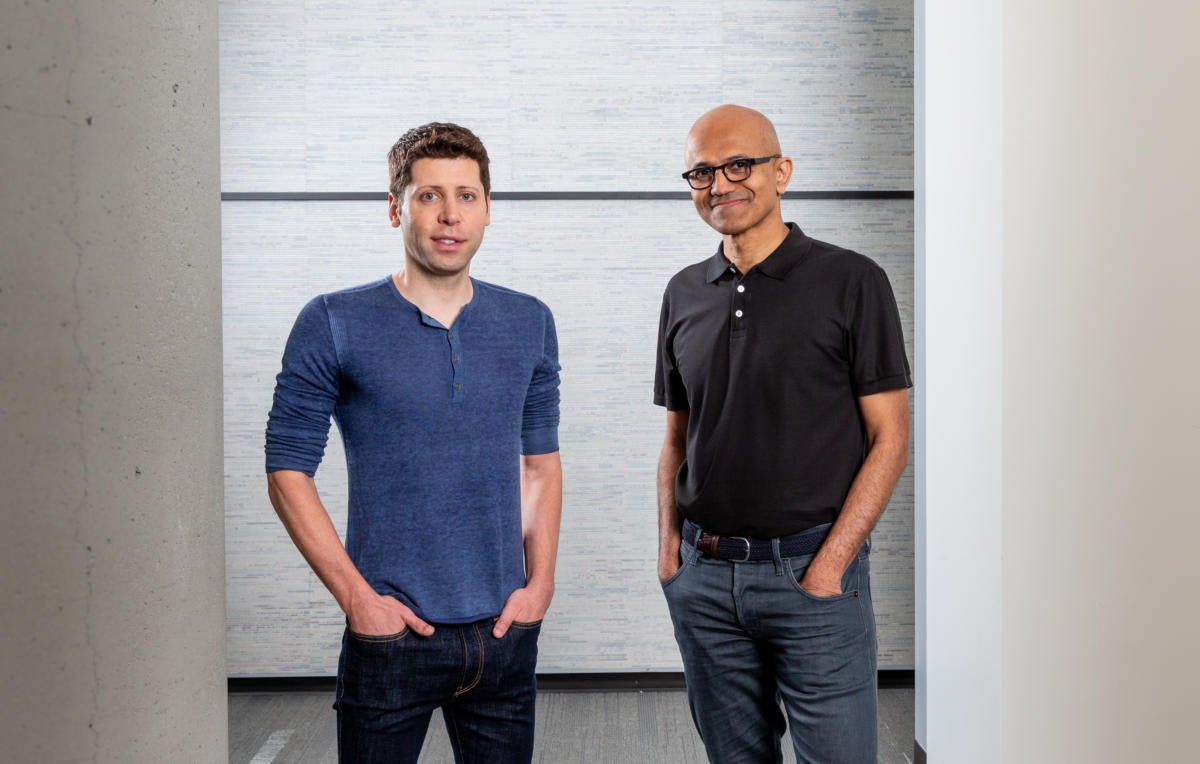Chaos continues to reign at OpenAI, with the appointment of Emmett Shear, the co-founder and former CEO of Twitch, a video-streaming website, as OpenAI’s interim CEO after the abrupt exit of OpenAI’s ex-CEO, Sam Altman, last week.
Shear will be replacing Mira Murati, OpenAI’s chief technology officer, who was initially named OpenAI’s CEO after the company board shunted out 38-year-old Altman on November 17.
The board hinted that Altman was not always “candid” in his communications with the board without specifying the exact reasons for firing him. A New York Times report quoted an OpenAI executive saying that Altman’s exit was because of a “breakdown in communication between Sam and the board.”
Hours after OpenAI announced the new CEO, Microsoft CEO Satya Nadella announced hiring Altman to lead the company’s advanced AI research team.
“And we’re extremely excited to share the news that Sam Altman and Greg Brockman, together with colleagues, will be joining Microsoft to lead a new advanced AI research team. We look forward to moving quickly to provide them with the resources needed for their success,” Nadella said in a post on X (formerly Twitter).
With an investment of $13 billion, Microsoft is a major investor in OpenAI. The speculation that Altman might be starting a new venture comes to an end with his move to Microsoft.
Altman and OpenAI
For a while after his exit, it seemed as if Altman was trying to negotiate his reinstatement. His departure was followed by the exit of Greg Brockman, president and co-founder of OpenAI.
According to Brockman’s post on X, OpenAI’s management was completely unaware of the board’s decision to oust Altman. Several other employees have quit OpenAI in solidarity with Altman, according to media reports
“I loved my time at OpenAI. it was transformative for me personally, and hopefully the world a little bit. Most of all I loved working with such talented people. will have more to say about what’s next later,” Altman said on X.
Since the time Altman co-founded OpenAI in 2015, he has emerged as one of the foremost voices on generative AI. Initially formed as a non-profit organization, OpenAI transitioned into a commercial entity under Altman’s leadership. He rose to prominence for leading the development of ChatGPT, which was launched last year and quickly became one of the fastest-growing software applications ever.
Altman’s contribution to the development of AI was acknowledged by several technology leaders, including Google’s former CEO, Eric Schmidt. “Sam Altman is a hero of mine. He built a company from nothing to $90 Billion in value, and changed our collective world forever. I can't wait to see what he does next. I, and billions of people, will benefit from his future work- it's going to be simply incredible. Thank you,” said Schmidt’s post on X.
Growing differences over AI usage
Tech industry leaders are divided on how to proceed with the development of generative AI, with some who want to commercialize it quckly and those who are apprehensive about deploying the technology before regulation is put in place. There is also a growing concern that AI technology might not just impact jobs, but may progress beyond human control.
The launch of ChatGPT also set off a debate on the ethical and safe usage of AI, versus the commercial potential of generative AI. According to media reports, it seems this was a key point of contention between Altman and Ilya Sutskever, co-founder, chief scientist, and board director at OpenAI, which finally resulted in Altman’s departure from the company.
“The long-term impact will be the lack of trust in AI startups who do not have the right governance structure nor the right balance between commercialization and AI ethics. This is an age-old tale of bad governance design and failure to adjust business models in the face of a rapidly changing macro climate,” said Ray Wang, principal analyst and founder of Constellation Research.
“Right now, Open AI’s credibility in trust vs commercialization is at stake. The company with the most to lose is Microsoft. If Sam leaves for good, he will take a lot of people with him to his new venture and he will not make the same governance mistakes,” Wang said.






